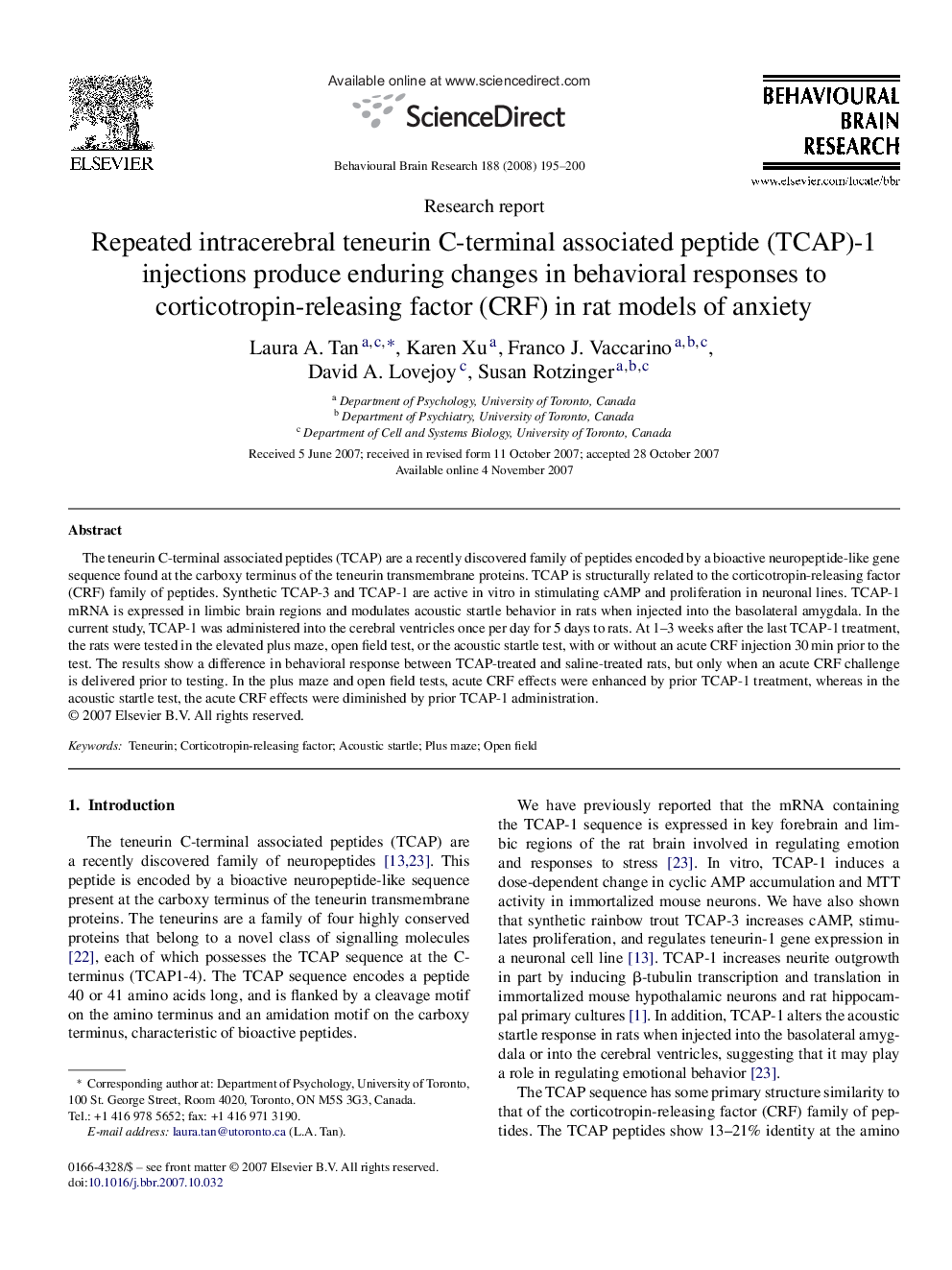| Article ID | Journal | Published Year | Pages | File Type |
|---|---|---|---|---|
| 4315445 | Behavioural Brain Research | 2008 | 6 Pages |
The teneurin C-terminal associated peptides (TCAP) are a recently discovered family of peptides encoded by a bioactive neuropeptide-like gene sequence found at the carboxy terminus of the teneurin transmembrane proteins. TCAP is structurally related to the corticotropin-releasing factor (CRF) family of peptides. Synthetic TCAP-3 and TCAP-1 are active in vitro in stimulating cAMP and proliferation in neuronal lines. TCAP-1 mRNA is expressed in limbic brain regions and modulates acoustic startle behavior in rats when injected into the basolateral amygdala. In the current study, TCAP-1 was administered into the cerebral ventricles once per day for 5 days to rats. At 1–3 weeks after the last TCAP-1 treatment, the rats were tested in the elevated plus maze, open field test, or the acoustic startle test, with or without an acute CRF injection 30 min prior to the test. The results show a difference in behavioral response between TCAP-treated and saline-treated rats, but only when an acute CRF challenge is delivered prior to testing. In the plus maze and open field tests, acute CRF effects were enhanced by prior TCAP-1 treatment, whereas in the acoustic startle test, the acute CRF effects were diminished by prior TCAP-1 administration.
